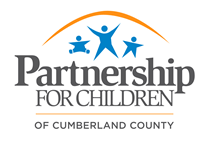The Family Focus Guide helps families and individuals in and around the Fayetteville area find resources in our community.
If you have a service-focused organization that serves families in the Fayetteville, Cumberland County area and would like to be listed, please email us at [email protected].
The ALMS HOUSE coordinates with Hope Mills area social workers to provide packs of food each Friday for children who may not have enough food over the weekend.
The ALMS HOUSE or Associated Local Ministries in Service Helping Others in Unfortunate Situations and Experiences provides emergency food, clothing, and financial assistance for Hope Mills and Fayetteville area. A referral from Cumberland County Social Service is required.
The Alzheimer's Association is the leading, global voluntary health organization in Alzheimer's care and support, and the largest private, non-profit funder of Alzheimer's research. Our mission is to & eliminate Alzheimer's disease through the advancement of research; to provide and enhance care and support for all affected, and to reduce the risk of dementia through the promotion of brain health.
The Autism Society of Cumberland County will provide family support services to children suspected of or diagnosed with Autism Spectrum Disorders (ASD) in Cumberland County. This activity will serve children ages B-5 and their siblings with the Circle of Parents Curriculum. Support services provided may include resource, referral, parent education, support groups, workshops, conference scholarships, monthly newsletters, or resource directories
The Beatitude House Ministries of the NSRBA seek to give families and individuals "A Hand Up, Not A HandOut." At the Beatitude Houses you will find clothes, toys, and household items priced to fit the needs of families on a tight budget as well as a Food Pantry for those in need.
Saturday - 10:00 a.m. - 2:00 p.m.
The Bereavement Support Group of Cape Fear Valley Hospice meets at 1830 Owen Drive, Suite 203 (Bordeaux Shopping Center), Professional Offices in Fayetteville, NC. They meet on the first and third Thursdays of every month from noon to 1:30 p.m. The group is for those who are coping with the death of a loved one. For more information, please call 609-6740 or 609-6511. Chaplain Teresa Strickland at (910) 609-6710.
The C.A.R.E. Clinic (Compassion, Assistance, Referral, and Education Clinic), provides free basic primary health care for uninsured Cumberland County adults who have limited incomes. The services include primary medical care, dental extractions, chiropractic care, limited pharmacy services, routine laboratory test, social services, education, and referrals to other resources in the community.
Clinics are held every Tuesday and Thursday and the 2nd and 4th Wednesdays, beginning at 4:00pm.
The Carolinas Center for Hospice and End of Life Care is the two-state association representing over 100 hospice providers in North and South Carolina. The organization provides support to local hospice programs through technical assistance, education, and advocacy in the state legislatures, state regulatory bodies, and Congress. Hospice care is currently available in every North and South Carolina county. In 2010, more than 70,000 patients and their families were served in the Carolinas.
The Center for Economic Empowerment and Development is a Lease to Home program. The C.E.E.D is an innovative program focused on assisting people in transitioning from homelessness to home ownership. The main purpose of this program, is to offer individuals and families from all backgrounds, an affordable and safe place to live. This includes rentals as well as the opportunity to become homeowners.
The Child Advocacy Center provides up to date Child Abuse Training.
The Child Care WAGE$ Project provides education-based salary supplements to low-paid teachers, directors, and family child care providers working with children between the ages of birth and five. The project is designed to provide preschool children more stable relationships with better-educated teachers by rewarding teachers’ educational advancement and continuity of teachers in child care situations.
The City of Fayetteville Community Development Deparmtne operates a network of neighborhood resource centers located throughout the city. The centers are in low to moderate income communites to give citizens convenient access to resource. The primary focus is to provide the adult job seeker with educational tools and special training that will enhance employability.
The City of Fayetteville Community Development Deparmtne operates a network of neighborhood resource centers located throughout the city. The centers are in low to moderate income communites to give citizens convenient access to resource. The primary focus is to provide the adult job seeker with educational tools and special training that will enhance employability.
The City of Fayetteville Community Development Deparmtne operates a network of neighborhood resource centers located throughout the city. The centers are in low to moderate income communites to give citizens convenient access to resource. The primary focus is to provide the adult job seeker with educational tools and special training that will enhance employability.
The City of Fayetteville Community Development Deparmtne operates a network of neighborhood resource centers located throughout the city. The centers are in low to moderate income communites to give citizens convenient access to resource. The primary focus is to provide the adult job seeker with educational tools and special training that will enhance employability.
The City of Fayetteville Community Development Deparmtne operates a network of neighborhood resource centers located throughout the city. The centers are in low to moderate income communites to give citizens convenient access to resource. The primary focus is to provide the adult job seeker with educational tools and special training that will enhance employability.
The City of Fayetteville Community Development Deparmtne operates a network of neighborhood resource centers located throughout the city. The centers are in low to moderate income communites to give citizens convenient access to resource. The primary focus is to provide the adult job seeker with educational tools and special training that will enhance employability.
The City of Fayetteville Community Development Deparmtne operates a network of neighborhood resource centers located throughout the city. The centers are in low to moderate income communites to give citizens convenient access to resource. The primary focus is to provide the adult job seeker with educational tools and special training that will enhance employability.
The City of Fayetteville Community Development Deparmtne operates a network of neighborhood resource centers located throughout the city. The centers are in low to moderate income communites to give citizens convenient access to resources. The primary focus is to provide the adult job seeker with educational tools and special training that will enhance employability.
The City of Fayetteville Community Development Department operates a network of Neighborhood Resource Centers located throughout the city. The centers are in low to moderate-income communities to give citizens convenient access to resources. The primary focus is to provide the adult job seeker 18 years and older with educational tools and special training that will enhance employability.


